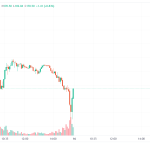Dynamic endeavour crucial for achieving and sustaining success in the financial markets. Analysing efficiency, minimize errors, maximize profitability.
Trading Process Improvement - Critical Factors for Success
- Exploring the Vision
- What New Skills Are Required for Success
- How Does Trading Impact Your Life Balance
- Value the Experience
- Be Honest with Yourself
Exploring the Vision
Earlier, we examined trading as an entrepreneurial endeavor. Just like any startup, a trading business requires not only funding and clear plans but also a compelling vision. For a startup, this vision usually involves identifying a unique opportunity and addressing a specific need in a way that promotes growth and success. However, many traders seem to lack this vision, often focusing solely on the next trade and navigating daily challenges. Success in trading, like in any business, starts with a clear vision of your strengths, opportunities, and mission. What do you excel at in trading, and what gives you a competitive edge in the market? What are you aiming to build with your trading business, and where do you see yourself in five years? While steady improvement is important, these efforts should be aligned with long-term goals. It’s often the strength of a vision that drives entrepreneurs through the demanding process of building and growing their business.
What New Skills Are Required for Success
Just this morning, I spent several hours developing an improved set of measures for price momentum and volatility. My goal was to create a momentum measure sensitive to multiple time frames and a volatility measure that combined both realized and implied volatility. Without foundational skills in databases, statistics, and spreadsheets, this investigation would have been impossible. The notion that discretionary trading doesn’t rely on numbers, statistics, or inferential reasoning is absurd. In fields like medicine and engineering, professionals base their judgments on careful observation and measurement. Relying solely on charts and a few standard indicators misses much of what drives markets. Effective trading often requires upgrading skills—better data acquisition, advanced software for data analysis, improved methods for generating ideas, and enhanced risk management tools. The successful trader embraces these skill upgrades to identify and exploit market opportunities, while the unsuccessful trader expects the market to adapt to their existing skills. The continuous pursuit of better tools and methods fosters a learning curve that leads to improved trading performance over time.
How Does Trading Impact Your Life Balance
If you’re an average teacher or short-order cook, you can make a living. However, if you’re an average trader, you risk losing money and potentially going out of business. This highlights a key difference between performance-based fields and other vocational areas. For example, the average gymnast, baseball player, or chess player doesn’t make a living from their sport. Similarly, most actors or artists don’t support themselves solely through their craft. In performance fields, many are called, but only a few achieve success.
This doesn’t mean that trading can't be profitable or that developing as a trader is a waste of time. Throughout my career, trading has provided supplemental income rather than being my primary source of earnings. I enjoy the challenge of trading and believe that it has contributed to my personal growth. I’ve made sure that trading fits into my life rather than dominating it. Having a clear perspective on the role of trading in your life helps you define success in realistic terms. Fantasies are not business plans. Balancing lofty aspirations with practical realities is a solid approach for achieving success in any business.
Value the Experience
You’ll never consistently sell at the top or buy at the bottom. There will always be missed opportunities, unrealized profits, and inevitable losses. Some traders will catch moves that you miss, and others will trade larger accounts and earn more. Many traders mistake market movement as a sign of missed opportunity and then blame themselves for leaving money on the table. Perfectionism can lead to frustration and discouragement. As a performance professional, your focus should be on improving your skills. Use self-improvement as your primary goal, and measure your progress based on whether your efforts lead to frustration or growth. By concentrating on enhancing your skills, you maintain control over your development and ensure that your goals are both challenging and attainable. If trading isn't a source of well-being, it won't be a reliable path to success.
Be Honest with Yourself
Right here, right now, give yourself a report card on your trading performance. How would you grade yourself in the following areas:
- Adaptability to Market Conditions: How well do you adjust to different market environments and changing conditions
- Understanding of Strengths: Do you have a clear grasp of the specific strengths that contribute to your trading success
- Creativity and Innovation: How effective are you at generating fresh ideas and finding new sources of market edge
- Identification of Best Practices: Are you able to identify your best practices and develop processes that help you stay grounded in them
An honest self-assessment is essential before making meaningful changes. Consider whether you view yourself as a promising trader, but ask yourself if you're also running a promising trading business. If someone else were managing the trading business you currently operate, would you choose to invest in it.
Leave a comment
Your email address will not be published. Required fields are marked *



